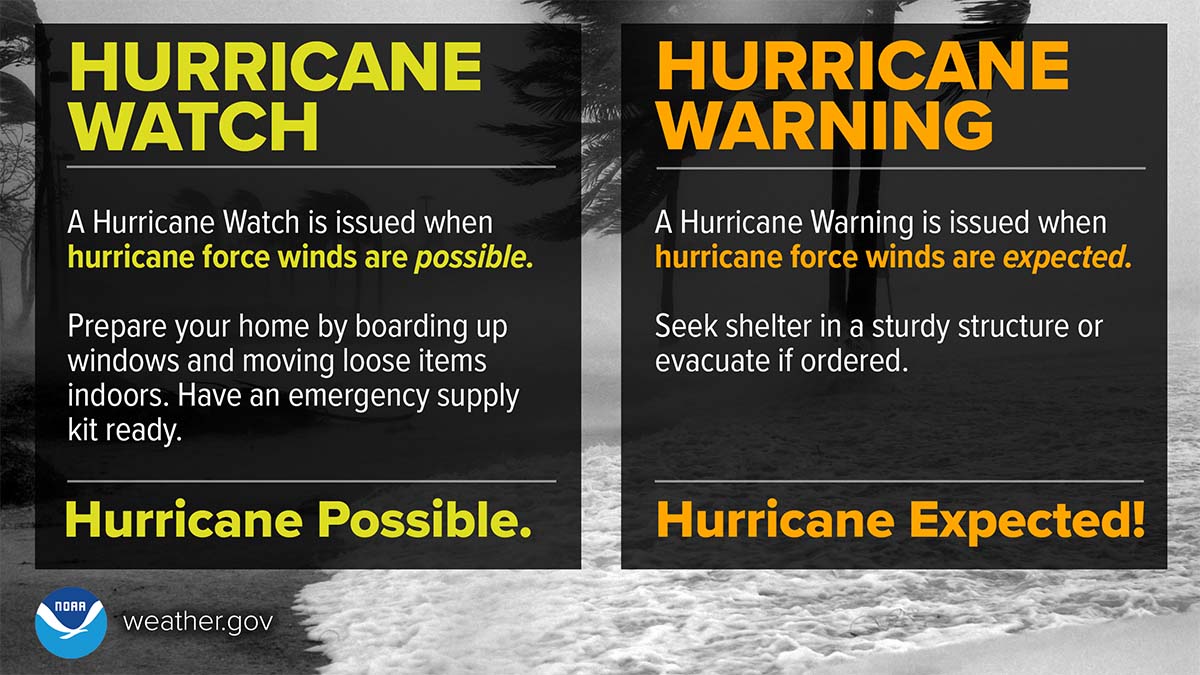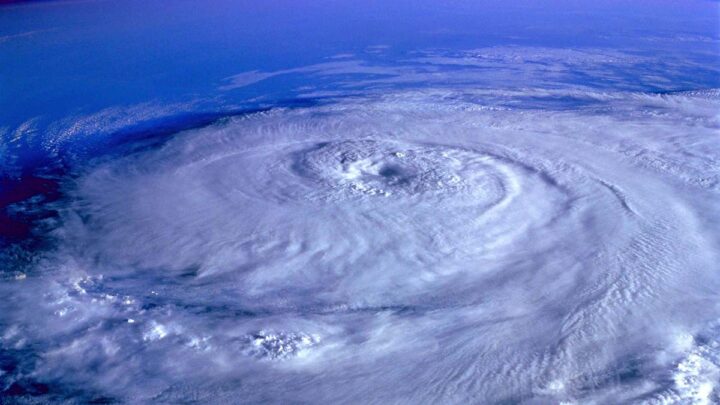The Atlantic Hurricane Season has begun. We recently shared some resources to help you and your church prepare for the 2024 season and extreme heat.
Hurricanes and tropical storm impacts are not localized only to coastal areas. Communities inland can experience flooding, high winds, and tornadoes as well. As the skies are blue, it is important to begin preparing now so you are better prepared before and after a storm. Here are some resources, information, and tips to help you and your church prepare:
🌀Hurricanes: Forecasts & Resources
The National Oceanic and Atmospheric Administration (NOAA) National Weather Service predicts an 85% chance of an above-normal Atlantic hurricane activity, ranging from 17 to 25 total named storms this season. Various factors can contribute to the formation of tropical storms, such as warm ocean temperatures, reduced trade winds and wind sear, and the development of La Niña. The Atlantic Hurricane season runs from June 1 to November 30, 2024.
Hurricanes and tropical storms can cause storm surges, coastal and inland flooding, high winds, tornadoes, high surf, and rip currents.

The National Hurricane Center will soon include inland tropical storm and hurricane watches and warnings in its forecast cone graphics, in addition to coastal alerts. The National Hurricane Center is also offering Spanish-language text to key messaging, updates, and advisories.
Learn More About Hurricane Forecast Impacts→
Learn How to Use the Cone Graphic→
Learn More About NHC Tropical Cyclone Graphical Products→
FEMA Preparation Webinar
FEMA Region 2 National Preparedness and Response Division is hosting a Hurricane Preparedness for the Whole Community webinar on June 26 at 3 pm. The webinar will cover hurricane basics, preparation for people who live in hurricane-prone areas, and how to find your evacuation zone.
✅ Preparation
Build a Kit
Create or update an emergency kit. Include important documents, medications, food and water for each family member, pet supplies, cash, and a first aid kit.
Visit the American Red Cross, FEMA, or ReadyNC website for a list of items to include in your kit and view NC VOAD’s Preparation Checklist for Older Adults (Spanish PDF).
Communication Plan
Discuss an emergency plan with your family. Include a list of emergency contacts, set meet-up locations, know your evacuation routes, and make arrangements for your pets.
Develop a local church disaster plan to ensure your church is prepared for disasters. Compile important documents, establish calling trees, establish a communications plan, and ensure staff members know their responsibilities for preparation and assessment.
Stay up to date with severe weather updates and information from emergency officials. For more information on emergency alerts, visit ReadyNC.gov or ncdps.gov. For the latest weather updates, view the National Weather Service websites for Morehead City, Raleigh, and Wilmington.
Download a Local Church Disaster Plan Template→
Download a Contact Card Template→
Prepare Your Home & Church
Be sure to secure loose items outside and weatherize the building.
Watch a Video on How to Protect Your Home from Flood Damage (FLASH)→
Check to see if your insurance policy is active, what it covers, how to file storm damage claims, and what information is needed during the “off-season” to be better prepared for a storm. Be sure to take an inventory of your home and church to document items and their conditions in case of damage.
If there is any damage to the church property or parsonages, contact your District Superintendent and District Disaster Response Coordinator.
Evacuation Routes: Know Your Zone
Know where your local emergency shelters are located and what the evacuation routes are for your area. The NC Department of Public Safety created Know Your Zone, a map that shows evacuation zones where you live and which areas are vulnerable to hurricanes and other hazards.
Learn more at ReadyNC.gov and Ready.gov.
Connecting Neighbors
Learn how to prepare your home, church, and community for disasters. Contact 888-440-9167 or [email protected] to schedule a Connecting Neighbors training at your church!
📞 What To Do When Disaster Strikes
Here is an overview of what to do if a disaster impacts your church or community:
Your Church
- Contact your District Superintendent and District Disaster Response Coordinator
- Contact the Conference Disaster Response Coordinator at 888-440-9167
- Activate your church disaster plan
Your Community
- Contact your District Superintendent and District Disaster Response Coordinator
- Contact the Conference Disaster Response Coordinator at 888-440-9167
- Activate your church disaster plan
- Deploy volunteers per church plan and training
Another Community in Your District
- Contact your District Disaster Response Coordinator and the Conference Disaster Response Coordinator
- Check the conference website for updates and instructions
- If members of your church are Early Response Team certified, they will receive email updates and deployment instructions (please do not self-deploy)
Our Conference and Beyond
- Check the conference website for updates and instructions
- If members of your church are Early Response Team certified, they will receive email updates and deployment instructions (please do not self-deploy)
- Make a donation to the NC Conference Disaster Fund
📎 Resources
View our preparation page for more resources on individual and church preparation.

